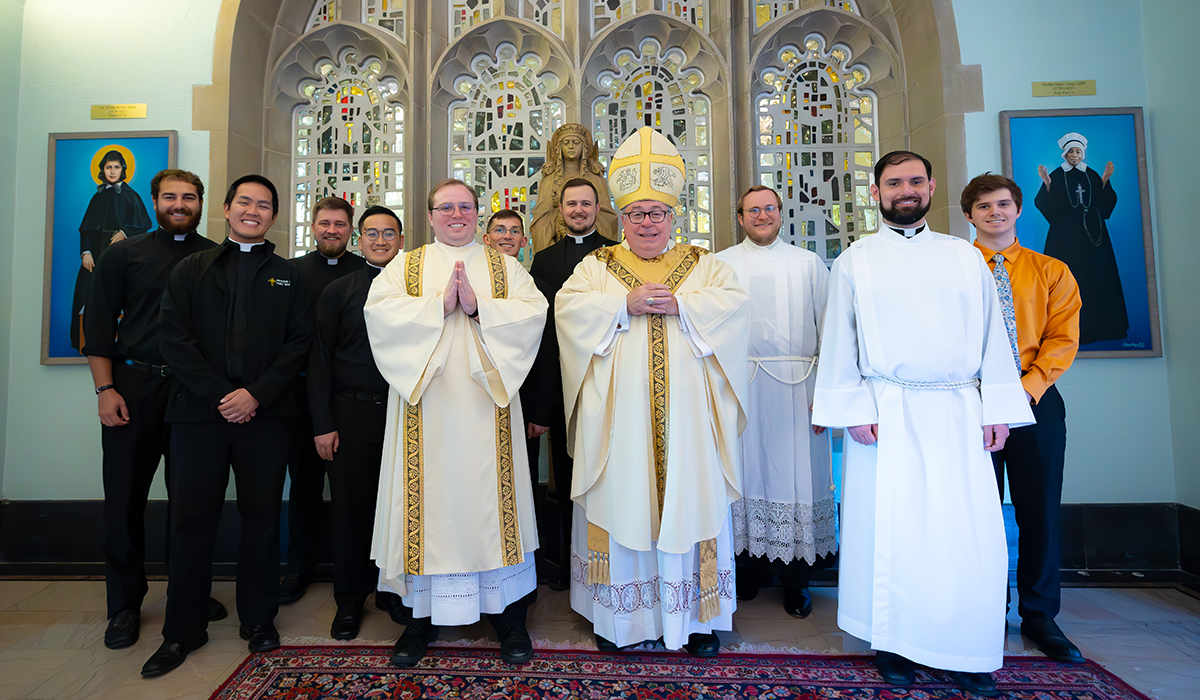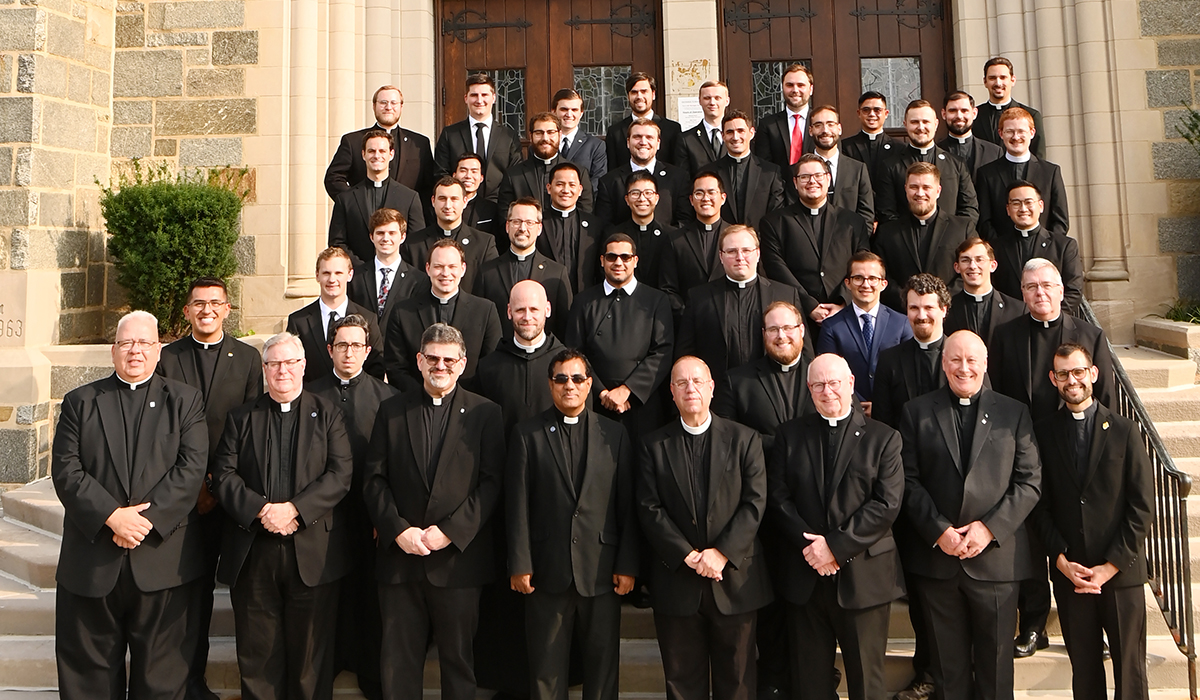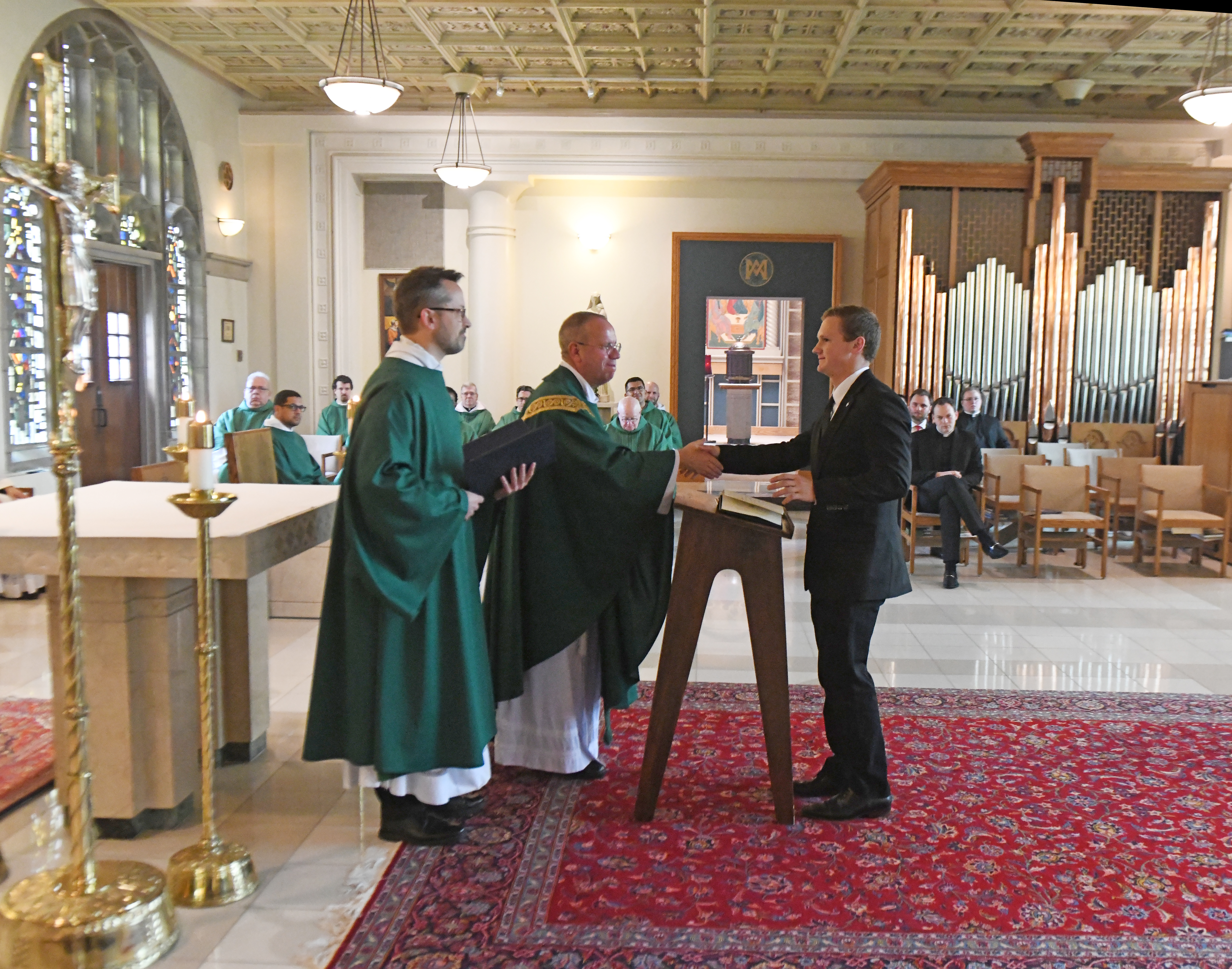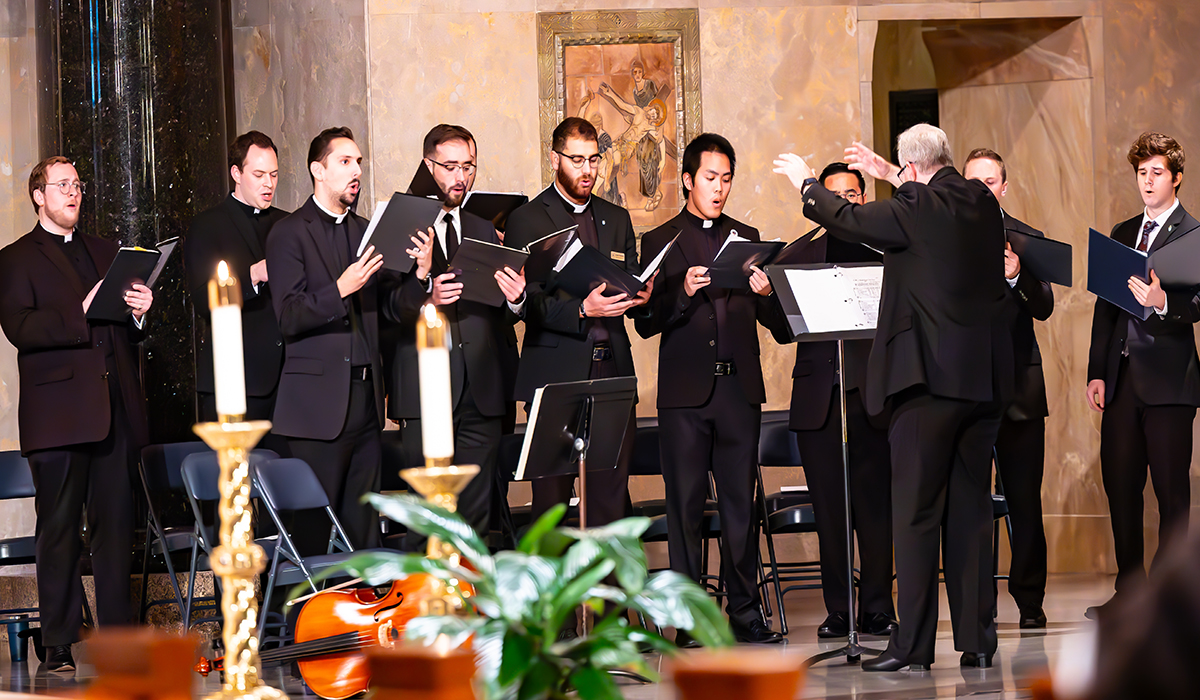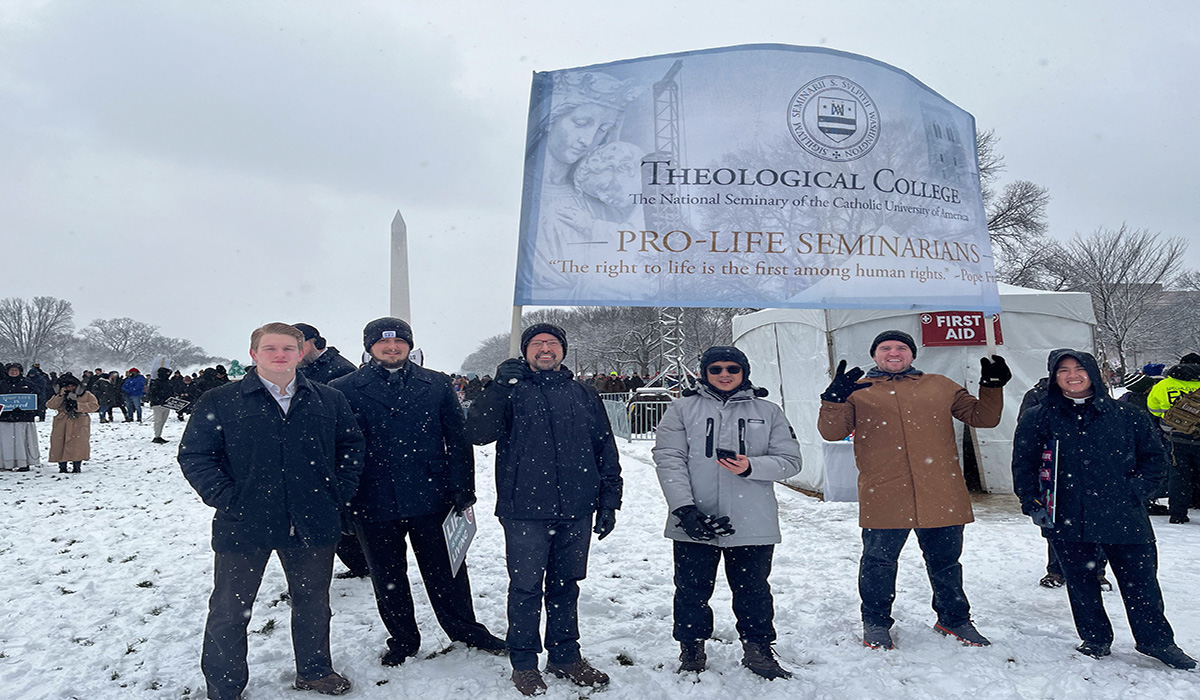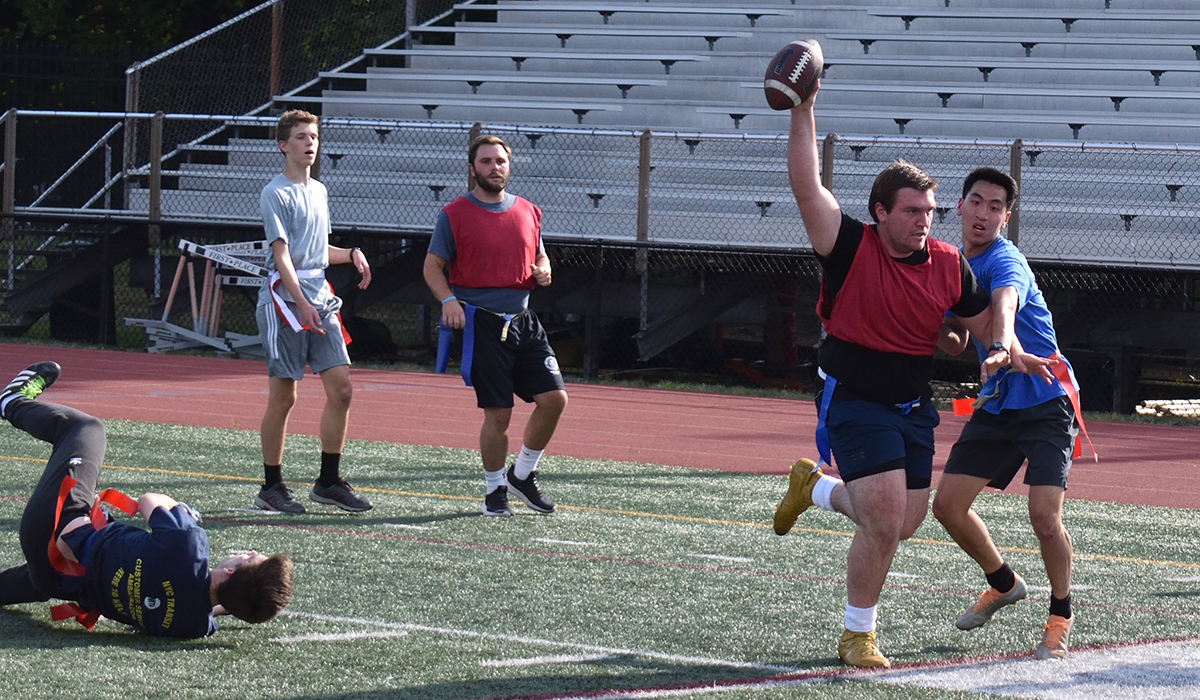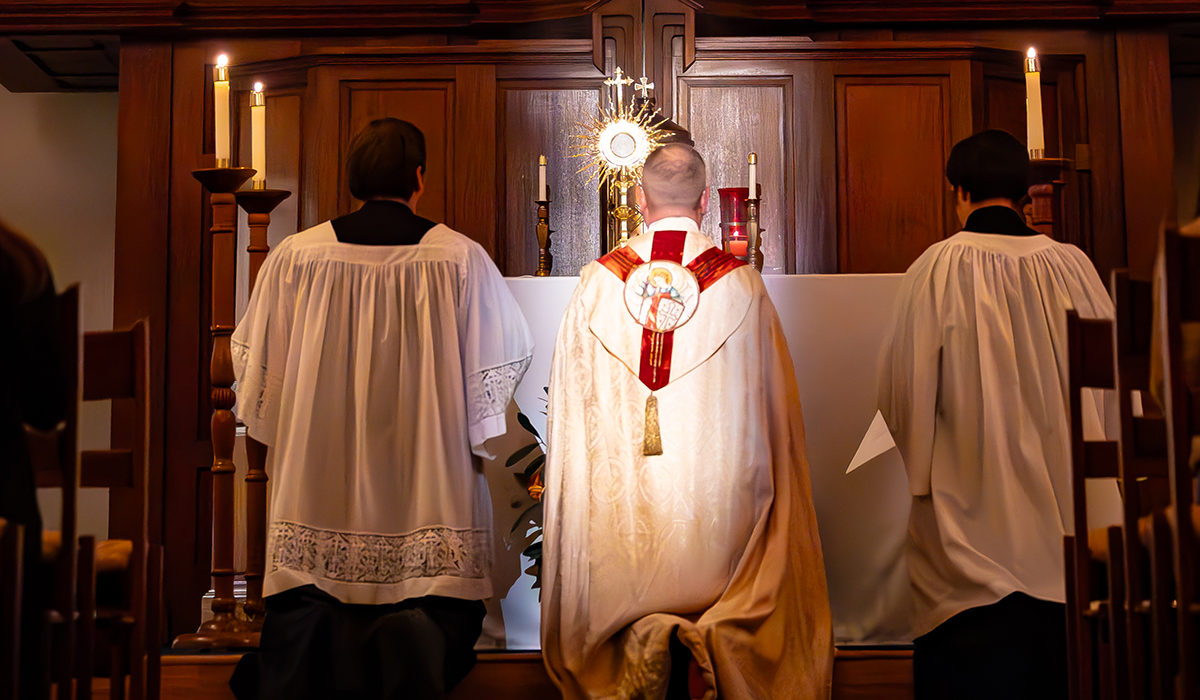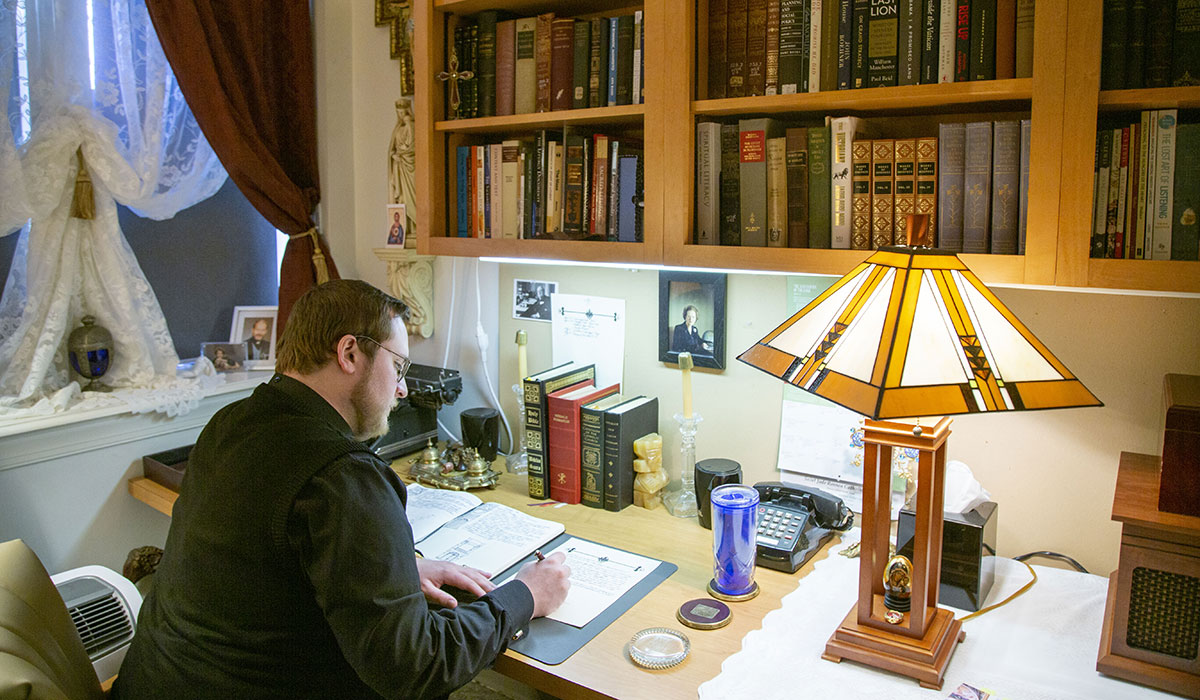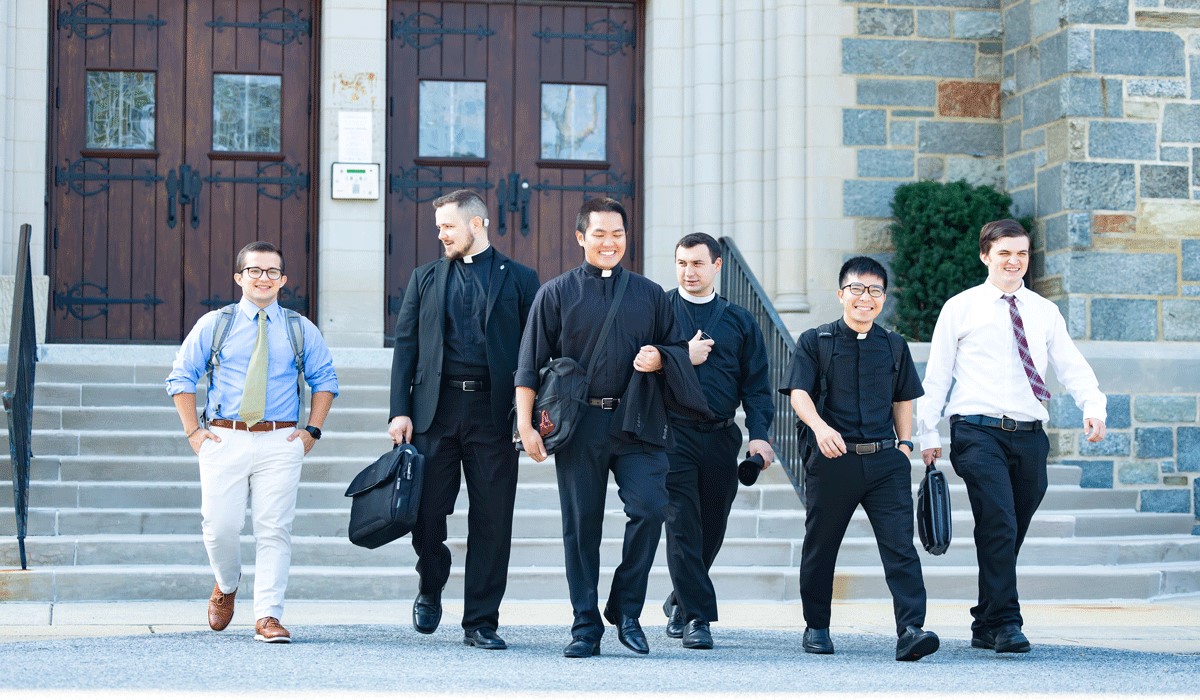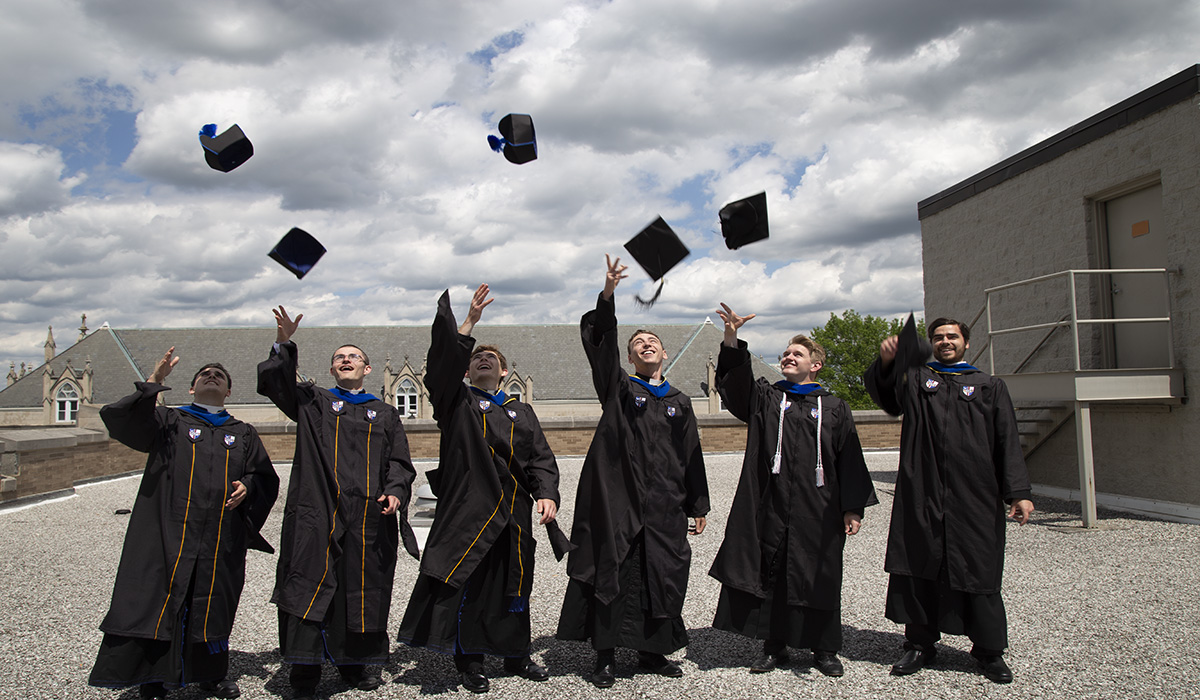Our formation program emphasizes four distinct dimensions: human formation, spiritual formation, intellectual formation, and pastoral formation.
Human Formation
Human formation is the foundation for all priestly formation. At Theological College, human formation occurs through the personal accompaniment of the spiritual director and formation advisor as well as through participation in the life of the seminary community, which in the Sulpician tradition is called communauté educatrice. Human formation focuses on self-knowledge, affective maturity, personal and social awareness and the capacity to relate to others, conflict management and leadership skills, and the development of a healthy lifestyle. For those dealing with problematic issues in their background or family, formation advisors offer discrete and vigilant help through referrals for psychological counseling and other resources. There is a strong focus on developing the capacity for leadership, self-knowledge, and forming healthy habits. Collegiality is encouraged and lived out in daily life in the seminary and through the work of the Community Life Committee, which is part of the Student Government Association. Many of the human formation issues and skills emerge and are developed as seminarians engage in and reflect on their experience of leadership in student government and other activities such as intramural sports with Catholic University as well as in-house athletic and intellectual competitions, movie nights, and cultural and outdoors events.
Spiritual Formation
Spiritual formation focuses on nourishing and cultivating a personal relationship with Christ in the power of the Spirit that is manifest in generous love toward others. This relationship is formed by the seminarian’s daily participation in the Eucharist, praying the Liturgy of the Hours, Adoration, silent prayer and reading of Scripture, and regular spiritual direction that includes the Sacrament of Reconciliation, evenings and weekends of recollection, small group formation based on class year, and an annual retreat.
Intellectual Formation
Intellectual formation is meant to develop within the seminarian a solid knowledge of philosophy and theology that is the basis for his vision of pastoral ministry and allows him to proclaim the Gospel in a way that is credible, captivating, and challenging. The seminarian should be able to give a reason for his hope in the Gospel. He must learn to hear, distinguish, and interpret today’s many voices in the light of the Gospel.
The Catholic University of America collaborates with the seminary to offer the highest caliber academic formation in its School of Theology and Religious Studies, School of Philosophy, and School of Canon Law. In addition to the Ph.B. and Ph.L. degrees earned primarily -- but not only -- by Basselin philosophy scholars (see below), the following degree programs are available to theologians: M. Div., S.T.B., S.T.L., S.T.D., and D. Min. The seminary also extends hospitality to priests who return to complete their J.C.L. or S.T.L. degrees at Catholic University, which offers S.T.L. degree specializations in biblical, historical, systematic, liturgical, sacramental, and moral theology.
Pastoral Formation
The first seminary to implement a supervised pastoral ministry program (in 1971), Theological College’s pastoral formation program offers a wide variety of mentored placements for seminarians to encounter Christ in the people of God, including experiences serving the poor and marginalized, catechetical ministry, campus ministry, hospital and nursing home ministry, prison ministry, parish-based ministry, and religious education.
The Catholic University of America, the Archdiocese of Washington, and the metro-D.C. area provide myriad ministry opportunities from which seminarians may choose their annual assignments, in sequential categories dependent on the student’s year at the seminary. Seminarians develop pastoral skills with the one-on-one guidance and encouragement of pastoral supervisors in a responsible, compassionate, and professional way. They also participate voluntarily in student-generated initiatives such as bringing meals to the homeless in the city and raising funds and awareness for local and international charities.

